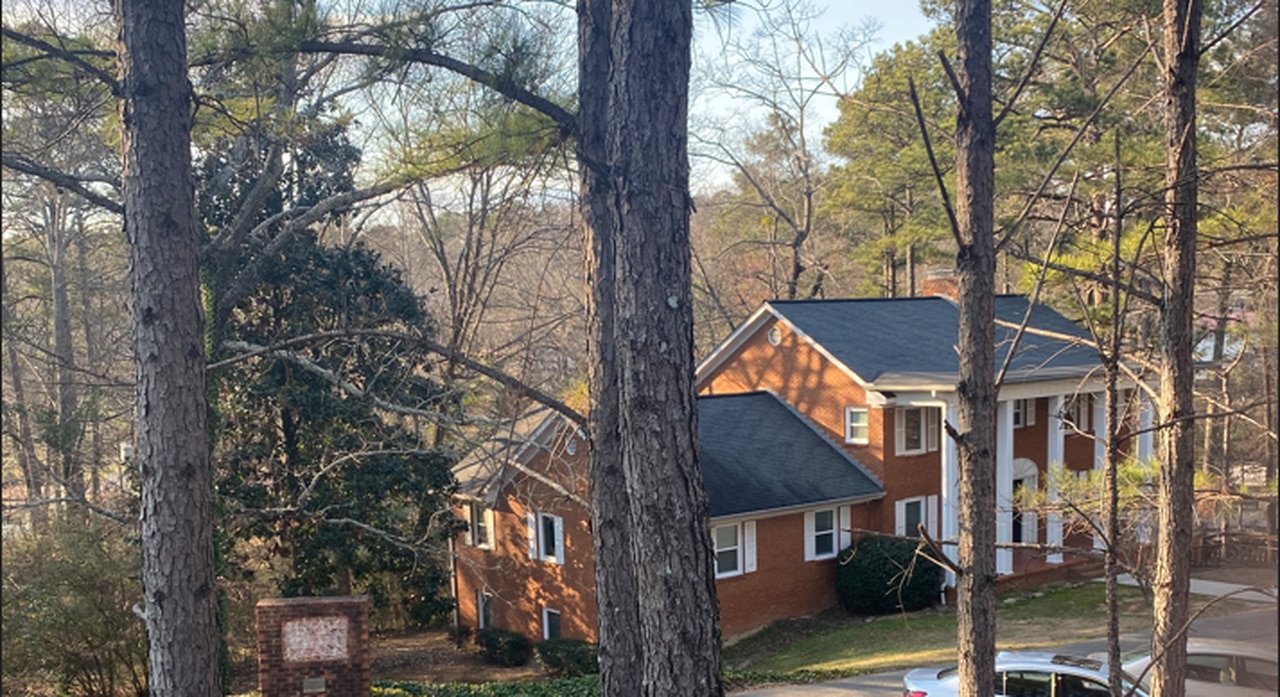Appeal filed challenging Samford University’s seizure of fraternity house
A Samford University graduate has filed an appeal to the Alabama Supreme Court on a case in which he alleges Samford University wrongfully seized a fraternity house and never paid the house corporation run by alumni.
Samford University in 2012 seized the Theta Alpha Zeta House/Lambda Chi Alpha fraternity chapter after a hazing incident. It shut down and took over the building without paying the non-profit corporation run by alumni that owned it, according to a lawsuit filed in Jefferson County Circuit Court.
James L. Hart, former chairman of the Alabama Securities Commission from 2010-19, retired managing partner of Hartford Partners accounting firm and an alumnus of Samford, said he filed the lawsuit because Samford still has never paid for the three-story, nine-bedroom house, which was estimated 10 years ago as being worth $1.2 million. It sits on a 1.5-acre lot owned by Samford, bordering Saulter Road at the rear of the Samford campus.
Jefferson County Circuit Judge Jim Hughey III dismissed the case on Sept. 19.
Hart filed an appeal to the state Supreme Court on Oct. 26.
“I’m fighting an uphill battle,” said Hart.
Samford renovated the former fraternity house and since 2012 it has served as the offices of Samford Student Affairs and Philip Kimrey, vice president of student affairs, according to the lawsuit.
Hughey first dismissed the lawsuit on Aug. 4, and a hearing on a motion to reconsider was held Sept. 15. David R. Boyd, a partner at Balch & Bingham, represented Samford and declined to comment after the hearing. Boyd did not immediately respond to a request for comment on the appeal.
The house, identified as the Theta Alpha house on campus maps, was built and maintained by the non-profit Theta Alpha Zeta House Corp. on land that was under a 100-year lease with Samford dating to 1971, Hart said.
Fraternity members who lived at the house in 2011 were found guilty of hazing for an incident which left a student with two stitches, but able to attend class the next day, according to Hart.
Samford on Dec. 7, 2011, suspended the local chapter of Lambda Chi Alpha, a national fraternity which had years earlier merged with Theta Kappa Nu when Samford was previously known as Howard University and located in East Lake, said Hart, a 1972 Samford graduate. Hart alleges that Samford later called suspended fraternity members back for a meeting to vote Hart and other officers out as members of Lambda Chi Alpha and replace them as officers of the House Corporation with new board members. Hart said that it was invalid for a suspended fraternity to conduct such a vote and that proper notification of members and officers did not take place.
Dennis Bubrig, who was Samford director of Greek Life from 2010-15, said no meetings of the fraternity should have taken place between Dec. 9, 2011-March 7, 2012, according to Samford’s suspension of the fraternity. Bubrig said in a sworn affidavit for the lawsuit that the offices of Student Life, including the Greek Life office, moved into the building in August 2012.
Judge Hughey questioned if too much time had passed to determine whether Hart had rightful claim to represent the Theta Alpha Zeta House Corp.
Hart said that as vice president, he was the officer in charge of overseeing the building on behalf of alumni who owned the non-profit corporation Theta Alpha Zeta House Corporation, and that when he found out Samford shut down the fraternity, he arranged to meet with officials and an appraiser to determine the value of the building so that Samford could buy it according to the terms of the lease contract signed in 1971 when the building opened. Instead, he said, he found on Feb. 8, 2012, that the locks had been changed and armed Samford police officers met him and forced him to leave the campus, Hart said. Hart said he was once so highly regarded as an alumnus of the Brock School of Business that he was on the search committee for a new dean when current Samford President Beck Taylor left as business dean in 2010.
Samford argued in court documents that Hart had not been a representative of the fraternity or Theta Alpha Zeta House Corp. since 2012. Lambda Chi Alpha national fraternity sided with Samford and after the suspension and was later able to resume a presence on the campus.
Hart said there was not legal action sooner because he and other Samford alumni involved thought they could work it out with Samford officials.
“They didn’t own that property,” Hart said. “They wanted it and they got it. They stole it for themselves.”
Samford University in 2012 seized the Theta Alpha Zeta House/Lambda Chi Alpha fraternity chapter after a hazing incident, shut it down and took over the building without paying the non-profit corporation run by alumni that owned it, according to a lawsuit filed in Jefferson County Circuit Court.
